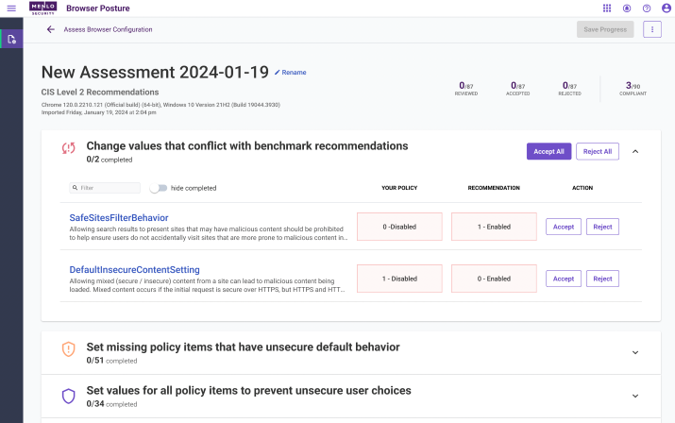Menlo Security's latest service will handle all browser requests in the cloud
All requests will be scanned and filtered before reaching the browser
2 min. read
Published on
Read our disclosure page to find out how can you help Windows Report sustain the editorial team Read more

Your browser security is essential since many exploits happen during browser sessions. This can be a problem in organizations, especially when managing tens or hundreds of devices.
To make security management easier, Menlo Security is here with a new service, that should protect all employees in organizations.
A new service from Menlo Security manages browser security from the cloud
Menlo Security has unveiled a new service that makes managing security policies easier in browsers according to Security Boulevard.
Vice president of Menlo Security, Andrew Harding, stated that Secure Enterprise Browser allows administrators to manage Menlo Secure Cloud Browser and isolate and filter browser traffic in the cloud.
Thanks to the zero-trust policy, all cyberattacks that are targeting browsers will be prevented from reaching the endpoint that is using Menlo Secure Cloud Browser.
This doesn’t mean that users will have to forgo their favorite browser. Instead, Menlo Security plans to handle web access requests on the cloud. This allows the service to scan all requests for malware and phishing attacks before they reach the user’s web browser.

By doing so, security teams won’t have to manage SSL/TLS certificates for every browser, which will make the job of security administrators a bit easier.
This service will also ensure that browser settings are properly configured, and not automatically changed after an update. There’s also a data loss prevention feature that will enhance features such as data masking, watermarking, and others.
Lastly, there’s an option to apply Menlo Browser Extension to unmanaged devices. Currently, this platform has approximately eight million users in around 1000 worldwide enterprises and organizations.
Is this the future for security administrators? With hackers using AI to perform cyberattacks, companies will have to adapt, and Microsoft is already using AI to stop hackers, so we assume that others will have to follow suit.








